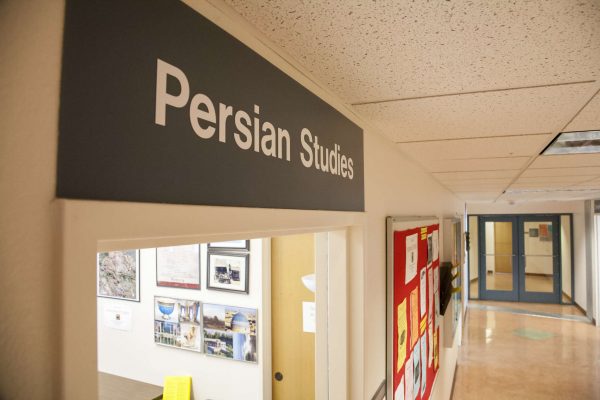
Low student enrollment in the Persian Studies program triggered three class cancellations this fall, causing concern within the 2-year-old minor.
“I’m worried that they’re going to take it away,” said Nagin Iqbal, who decided to minor in Persian Studies last spring. “It’s the first CSU to have a Persian Studies program and we’re very lucky to have the minor.”
When three Persian Studies classes were cancelled Aug. 25, their total enrollment consisted of 11 students. Mitra Ara, the founding director and assistant professor of the Persian Studies program said that since the program began in 2008, it never experienced class cancellations before the first day of instruction.
“Thirteen is not even the ideal size of a course,” said Daniel Bernardi, interim dean of the College of Liberal and Creative Arts. He added that it’s fair for the college to cancel classes before the first day of instruction to give students the option to adjust their schedules.
Bernardi explained that scarcely-enrolled courses don’t meet LCA standards of a quality learning environment. The LCA usually drops classes with less than 17 students, but kept two Persian Studies courses that fell under the threshold.
From 2008-2011, the average student enrollment in Persian Studies courses was 35 students per class but has since declined to half that number, according to Ara.
Ara first proposed the idea for a Persian Studies program in 2006, and two years later, SF State opened student enrollment to the first Persian Studies courses, according to Ara. The program was founded on private and public grants, which Ara considers necessary to expand the program to its envisioned department and major.
By 2012, SF State became the first and only school in the CSU system to offer Persian Studies as a minor, with 26 students enrolling since then. Of those, Ara said there are 15 declared minors left to graduate.
Students have traditionally maintained the Persian student center in addition to organizing cultural events and tutoring other students, according to Ara.
“This semester we have about eight students who are facilitating the student activities of the center and the media lab,” Ara said. ” I don’t think we need more staff, but we could use an additional instructor.”
Temporary faculty and graduate teaching assistants are hired based on budget, availability and enrollment, according to Mohammad Salama, associate professor and chair of the Department of Foreign Languages and Literatures.
Nagin Iqbal, who is of Persian background, said that the course she took with Ara last semester was the first time in her educational experience she actually learned about Persian history.
“Growing up you never learn about Eastern history. You always learn Western history,” Iqbal said.
She also said that the Persian Studies program offers students a critical analysis of Middle Eastern studies that is not readily available in the evening news.
“The media gives you a wrong image. It’s misleading,” Iqbal said. “You have to understand the people, the background and the history.”
Iqbal said the courses are not the only means through which students access Persian culture, and that interacting with students of Persian tradition is key to understanding Middle Eastern history.
“It’s definitely a good opportunity for students to connect with people from that background,” Iqbal said.
This semester, three of her four classes are Persian Studies courses, all taught by Ara. Ara said she showed up, out of respect for the first day of instruction, to personally inform the students where class had been cancelled and collected signatures as proof of student interest to apply for outside funding, which the program relies on.
“Not only our program’s classes were cancelled but other programs,” said Ara, who pointed to Spanish, Russian, Japanese, Italian, German and Arabic.
An additional six classes were cancelled in the Department of Foreign Languages and Literatures Aug. 22, according to Caterina Mariotti, administrative support coordinator for the Department of Foreign Languages and Literatures.
“It’s a small byproduct of major changes,” Ara said.




